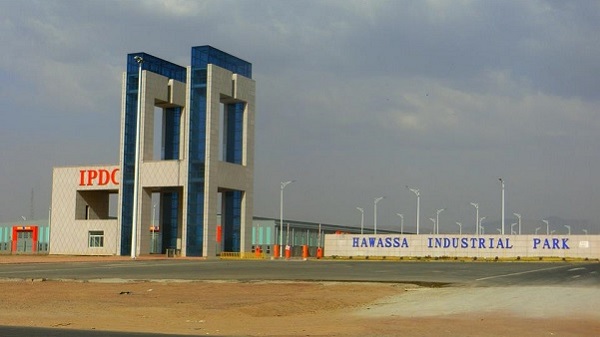
The Ethiopian government need to let know foreign investors that policy won’t block them from being beneficiaries of the other investment potentials of the country in organized and sustainable manner.
ADDIS ABABA, Ethiopia (The Ethiopian Herald)–The whole world has been witnessing the rapid economic growth of Ethiopia for over one decade. Indeed, several economists and international media outlets have forecast that Ethiopia will soon be one the largest economies in the continent of Africa as long as the country is able to keep its impressive and fast economic growth for the years to come.
Moreover, so often Ethiopia used to be related with famine and war in the past, but this distorted and negatively painted image of Ethiopia has now been completely changed. At present, Ethiopia is known for being Africa’s fast-growing non-oil economy.
Due to the nation’s remarkable economic achievements, sustainable peace as well as security, a number foreign investors and multi-national companies have been showing great interests to invest in various economic and social sectors than ever before.
In fact, some investors have already started doing business making use of the available attractive investment opportunities in the country.
To mention some of the largest and internationally renowned companies, Chinese shoe maker Hujian Group, Heineken, Unilever and the like are operating in Ethiopia.
Of course, Ethiopia is heavily investing in infrastructure development. For instance, railways and roads that are believed to be strategical in a bid to provide reliable transport across the nation are being constructed in integrated and timely manner by local and international contractors. To provide cheap power, there are ongoing dam projects like the Grand Ethiopia Renaissance Dam which will produce the total electric power of six nuclear power stations at once.
READ: The Role of Integrated Agro-industrial Parks in Ethiopia’s Development
Obviously, the prevailing fast economic growth in Ethiopia is bringing about industrial-centric societies. This by itself will create huge market for multi-national companies like Coca Cola coupled with the ongoing fastest urbanization and the ever rising income levels of the presented estimated growing population of 94m.
However, there are challenges that need to be overcome without any further due with a view to attract many more foreign investors and to make the nation a hub of investment as well. It is true that the nation has put its foreign investment policy in black and white for many years. According to the policy, some sectors like telecommunications, financial services, media, the retail trade and transport are closed off to foreign investors for acceptable and obvious reasons.
Therefore, the government need to let know foreign investors that this policy won’t block them from being beneficiaries of the other investment potentials of the country in organized and sustainable manner.
Many reforms have been undergone to improve the existing business registration. As a result, investors can secure their business licenses within a matter of few days as long as they fulfill the prerequisites to invest in this country. Hence, to further encourage investors to come and invest here, their requests need to be answers within hours or seconds through using latest technology.
READ: Ethiopia Opens $3.61 Billion Gap on Kenya’s Economy
Apparently, Ethiopia is currently attracting a huge number of international textile manufactures. Some of these manufactures have successful set up their factories and hired local employees. Surprisingly, they are importing cotton despite of the fact that the climate of Ethiopia is very suitable to grow cotton. Thus, the nation need to encourage manufactures to grow huge amount of cotton for their own consumption and exporting purpose using eco-friendly pesticides and high-tech technology.
The government has to keep up building industrial zones and make sure that they are used for the intended purpose as well. The manufactures that are supposed to set up factories in the industrial zones need to be acquainted with the benefit from a tax ‘ holiday’ of’ up to 17 years.
In summing up, the nation needs to work harder in attracting many more foreign investors and promoting its investment potentials to the rest of the world.
Source: The Ethiopian Herald
——
Other stories:
- Ethiopia Opens $3.61 Billion Gap on Kenya’s Economy
- Chinese Companies Flourishing in Ethiopia’s Eastern Industry Zone
- The Role of Integrated Agro-industrial Parks in Ethiopia’s Development
- VIDEO: Ethiopia’s IT Hub Gebeya Explores Markets Beyond Africa’s Borders
- AfDB and Ethiopia Sign Funding Agreement to Provide Water and Sanitation to 3 Million People
